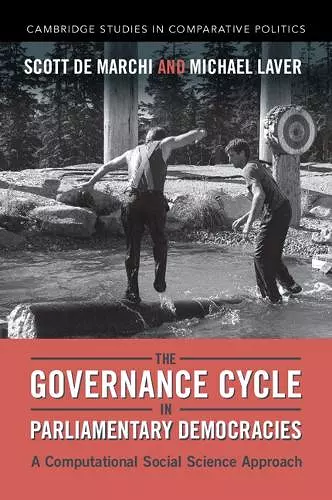The Governance Cycle in Parliamentary Democracies
A Computational Social Science Approach
Michael Laver author Scott de Marchi author
Format:Paperback
Publisher:Cambridge University Press
Published:9th Feb '23
Currently unavailable, and unfortunately no date known when it will be back
This paperback is available in another edition too:
- Hardback£85.00(9781009315470)

This book provides tractable computational analyses of the crucial but complex processes of government formation and survival.
This book uses a computational social science approach to analyze government formation and survival in parliamentary democracies. It models 'functionally rational' politicians who attack complex problems using heuristics and also develops artificial intelligence algorithms which relentlessly learn how best to 'win' the political game.Parliamentary democracy involves a never-ending cycle of elections, government formations, and the need for governments to survive in potentially hostile environments. These conditions require members of any government to make decisions on a large number of issues, some of which sharply divide them. Officials resolve these divisions by 'logrolling'– conceding on issues they care less about, in exchange for reciprocal concessions on issues to which they attach more importance. Though realistically modeling this 'governance cycle' is beyond the scope of traditional formal analysis, this book attacks the problem computationally in two ways. Firstly, it models the behavior of “functionally rational” senior politicians who use informal decision heuristics to navigate their complex high stakes setting. Secondly, by applying computational methods to traditional game theory, it uses artificial intelligence to model how hyper-rational politicians might find strategies that are close to optimal.
'When what works in theory fails in practice, it is time to think differently. Here, de Marchi and Laver develop a new theoretical approach for understanding the governance cycle in parliamentary democracies. By skillfully melding ideas from fields such as game theory, behavioral decision making, AI, and the computational modeling of complex systems, they produce key new insights into the behavior of political systems while also providing a masterful demonstration of the theoretical potential of 21st century social science.' John Miller, Carnegie Mellon
'Finally! de Marchi and Laver show, with smart theory and new methods capable of dealing with real world complexity, how and when savvy politicians form governments, sustain them, and bring them down. This is a terrifically useful book that comparativists can apply to understanding government formation almost anywhere, written in an accessible and often witty style.' Steven Wilkinson, Yale University
'In this foundational contribution to computational social science, de Marchi and Laver transform institutional analysis. Most important, they privilege realism by constructing and analyzing a far more descriptively accurate model of government formation processes than exists in the formal literature. That realism precludes the derivation of optimal strategies creating an opportunity for the authors to make plausible assumptions about party behavior. Their double pivot - toward institutional realism and away from full rationality - produces a compelling model with strong empirical support that will provide a template for future scholars.' Scott Page, University of Michigan
ISBN: 9781009315487
Dimensions: 228mm x 152mm x 13mm
Weight: 350g
200 pages